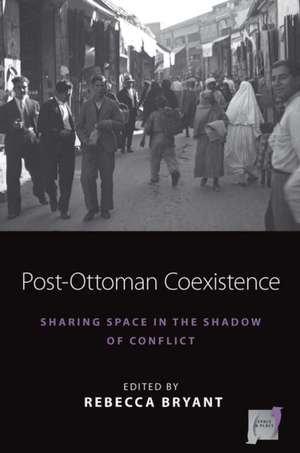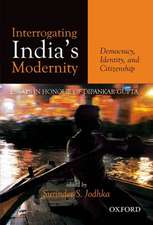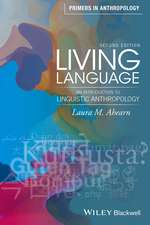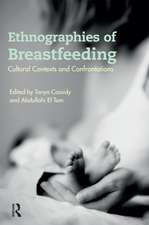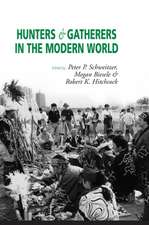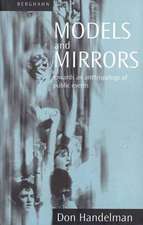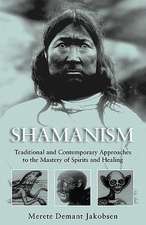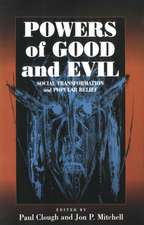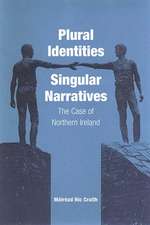Post-Ottoman Coexistence: Space and Place
Editat de Rebecca Bryanten Limba Engleză Paperback – 10 feb 2023
| Toate formatele și edițiile | Preț | Express |
|---|---|---|
| Paperback (1) | 156.61 lei 6-8 săpt. | |
| BERGHAHN BOOKS – 10 feb 2023 | 156.61 lei 6-8 săpt. | |
| Hardback (1) | 751.25 lei 6-8 săpt. | |
| BERGHAHN BOOKS INC – 24 mar 2016 | 751.25 lei 6-8 săpt. |
Din seria Space and Place
- 23%
 Preț: 749.09 lei
Preț: 749.09 lei -
 Preț: 154.27 lei
Preț: 154.27 lei - 23%
 Preț: 808.29 lei
Preț: 808.29 lei -
 Preț: 258.07 lei
Preț: 258.07 lei -
 Preț: 261.38 lei
Preț: 261.38 lei - 23%
 Preț: 836.36 lei
Preț: 836.36 lei - 23%
 Preț: 757.90 lei
Preț: 757.90 lei - 23%
 Preț: 750.49 lei
Preț: 750.49 lei - 23%
 Preț: 806.68 lei
Preț: 806.68 lei - 23%
 Preț: 749.91 lei
Preț: 749.91 lei -
 Preț: 221.33 lei
Preț: 221.33 lei - 23%
 Preț: 753.01 lei
Preț: 753.01 lei -
 Preț: 297.36 lei
Preț: 297.36 lei - 23%
 Preț: 752.13 lei
Preț: 752.13 lei -
 Preț: 219.58 lei
Preț: 219.58 lei - 23%
 Preț: 750.79 lei
Preț: 750.79 lei -
 Preț: 261.38 lei
Preț: 261.38 lei -
 Preț: 260.02 lei
Preț: 260.02 lei
Preț: 156.61 lei
Nou
Puncte Express: 235
Preț estimativ în valută:
29.97€ • 31.17$ • 24.74£
29.97€ • 31.17$ • 24.74£
Carte tipărită la comandă
Livrare economică 14-28 aprilie
Preluare comenzi: 021 569.72.76
Specificații
ISBN-13: 9781800737402
ISBN-10: 1800737408
Pagini: 294
Dimensiuni: 152 x 229 x 16 mm
Greutate: 0.4 kg
Editura: BERGHAHN BOOKS
Seria Space and Place
ISBN-10: 1800737408
Pagini: 294
Dimensiuni: 152 x 229 x 16 mm
Greutate: 0.4 kg
Editura: BERGHAHN BOOKS
Seria Space and Place
Notă biografică
Rebecca Bryant is Professor of Cultural Anthropology at Utrecht University and Visiting Professor in the European Institute of the London School of Economics and Political Science. She is the author of numerous works examining the ongoing division in Cyprus, including The Past in Pieces: Belonging in the New Cyprus (University of Pennsylvania Press, 2010) and Sovereignty Suspended: Building the So-Called State (University of Pennsylvania Press, 2020).
Descriere
Descriere de la o altă ediție sau format:
Scholars often refer to the "peaceful coexistence" of various religious and ethnic groups under the Ottoman Empire before ethnonationalist conflicts dissolved that shared space and created legacies of division. Post-Ottoman Coexistence interrogates this "coexistence".
Scholars often refer to the "peaceful coexistence" of various religious and ethnic groups under the Ottoman Empire before ethnonationalist conflicts dissolved that shared space and created legacies of division. Post-Ottoman Coexistence interrogates this "coexistence".
